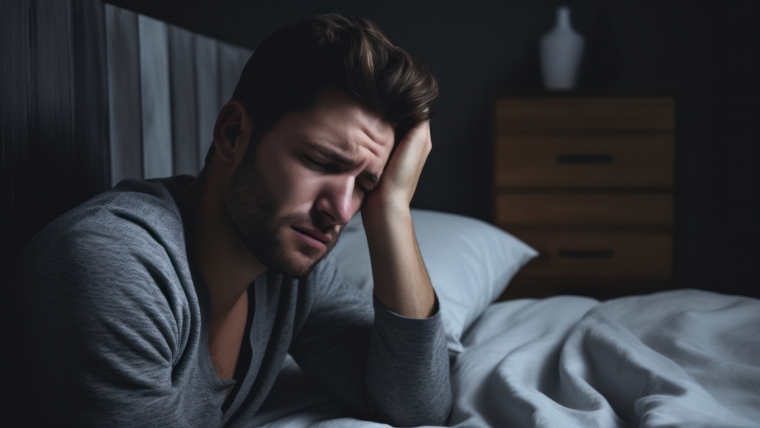There is nothing that makes life more challenging than not being able to sleep. If you are one of the nearly third of Australians struggling to get a good night’s rest, you might be wondering, “does hypnotherapy for insomnia work?”
While clinical hypnosis’s success rate can vary from person to person, working with a clinical hypnotherapist is a holistic and drug-free approach to overcoming insomnia.
What Causes Insomnia?
According to HealthDirect.au.gov, a third of Australians suffer from insomnia at least once in their lifetimes, and it’s a health condition that can have many different root causes behind it.
Factors and conditions that can contribute to trouble sleeping include keeping an irregular sleeping schedule and habits, disorders, and illnesses including depression, anxiety, physical pain, side effects from medications, poor dietary habits, a sedentary lifestyle, dehydration, worries, and stress.
Why Treat Insomnia With Hypnotherapy?
Sleep hypnosis is a powerful technique that uses guided words to relax the person treating the condition. As a result, it’s easier to fall – and remain – asleep.
Generally, sleep hypnosis sessions involve concentrating on verbal cues from a clinical hypnotherapist. The clinical therapist will use the power of suggestion to evoke a trance-like state.
Hypnotherapists’ common approaches include relaxation techniques, focusing attention, guided imagery, and symptom control to help clients get a better night’s rest.
When working with a clinical hypnotherapist to treat insomnia, some of the words and phrases they might use to induce a restful state could include “relax,” “let go,” and “breathe.” All of these verbal cues help encourage the listener to fall into a restful sleep.
Does Hypnosis Actually Work For Sleep Problems?
Many health experts suggest in does. They say hypnotherapy is a very effective insomnia treatment for people who respond well to the power of suggestion, which is about 87% of the population.
While hypnotism alone can help those with sleeping troubles, integrating other treatments, and healthy lifestyle changes can significantly increase success rates.
As a hypnosis expert, I believe this modality is a potent tool for some people suffering from sleeping troubles to establish healthier sleeping habits. Hypnotherapy helps people who use it fall into a state of deep relaxation using guided thinking.
Whether working one-on-one with a certified hypnotherapist or listening to a guided meditation, the verbal cues and the power of suggestion can help contribute to a better night’s rest.
Hypnosis therapy can treat both primary and secondary insomnia cases, ranging from triggers caused by stress or other more serious health concerns such as cancer.
Unfortunately, numerous health conditions can interfere with sleep patterns. Hypnosis can be beneficial as a standalone treatment or as part of a cognitive-behavioral therapeutic approach. The research found that it has proved helpful for people suffering from various symptoms, disorders, and health conditions.
Disorders and illnesses include PTSD (Post Traumatic Stress Disorder,) chronic fatigue, multiple sclerosis, fibromyalgia, cancer, teeth grinding, post-menopausal women, and people with irritable bowel syndrome or lower back problems.
It’s important to note that following a wake-up routine helps support a more robust sleep schedule. This wake-up routine could start with something as simple as setting a rigid time, for example, 7 AM, to wake up. By waking at the same time each day, you establish a habit that impacts your overall sleep patterns.
Get on the Road To A Better Nights Rest
If you start experiencing consistent sleep issues, contact your primary care provider to discuss your symptoms first. By doing so, you can rule out the possibility of other underlying conditions.
Common health concerns, including diabetes, Alzheimer’s Disease, and cardiovascular disease, can impact sleep quality, should get timely treatment under the care of a physician.
Hypnotherapy Melbourne offers a holistic approach to address various levels of sleep disturbances caused by many reasons.
Customized hypnotherapy sessions help meet the needs of the individual getting treated. With an extensive toolbox of techniques, these sessions often make positive behavioral changes to support a better night’s rest and improved health in those who use them.
Suppose you’re tired of tossing and turning at night. In this case, the best way to find out does hypnotherapy for insomnia work is by scheduling a consultation with our clinical hypnotherapist today.





